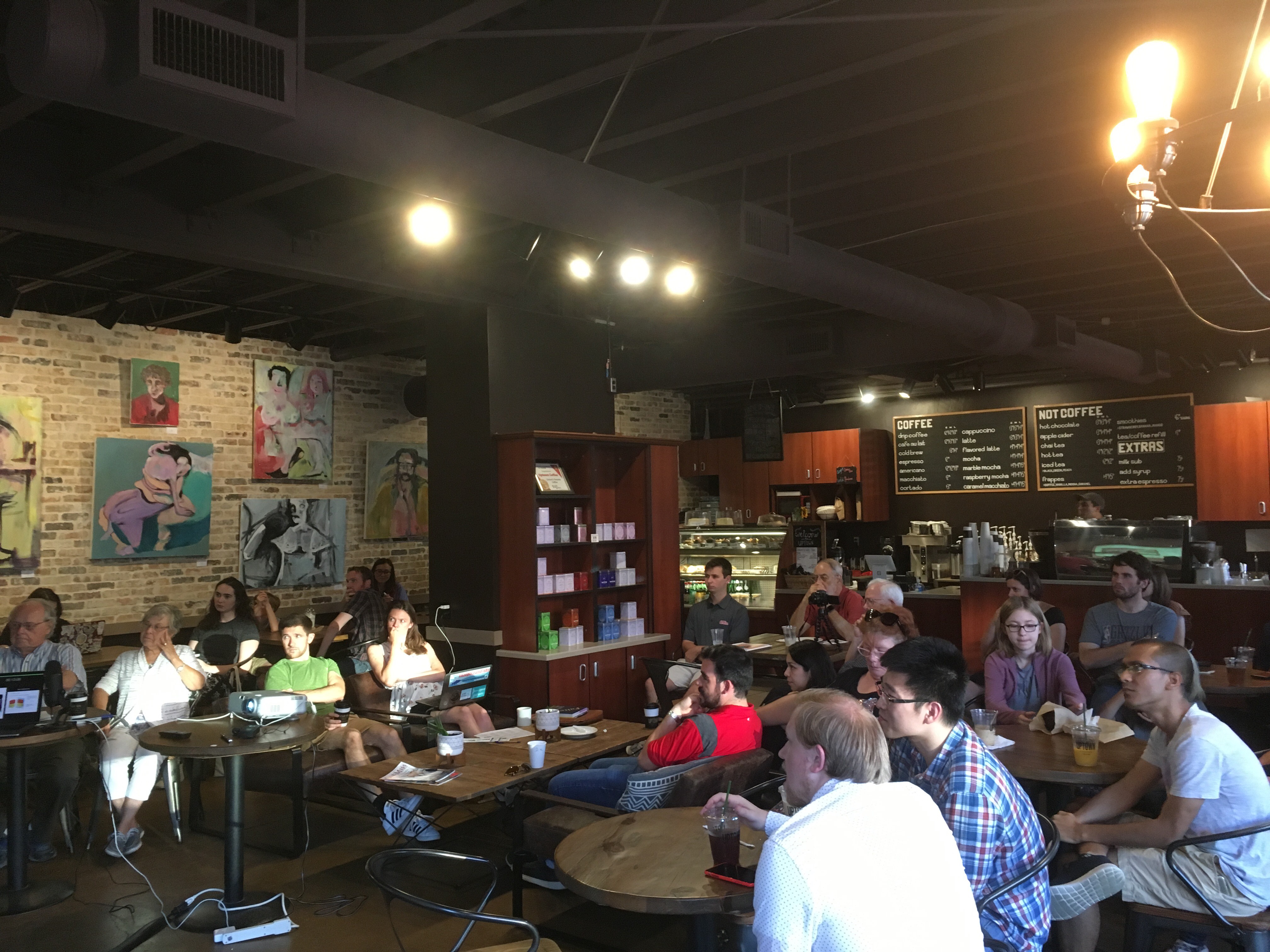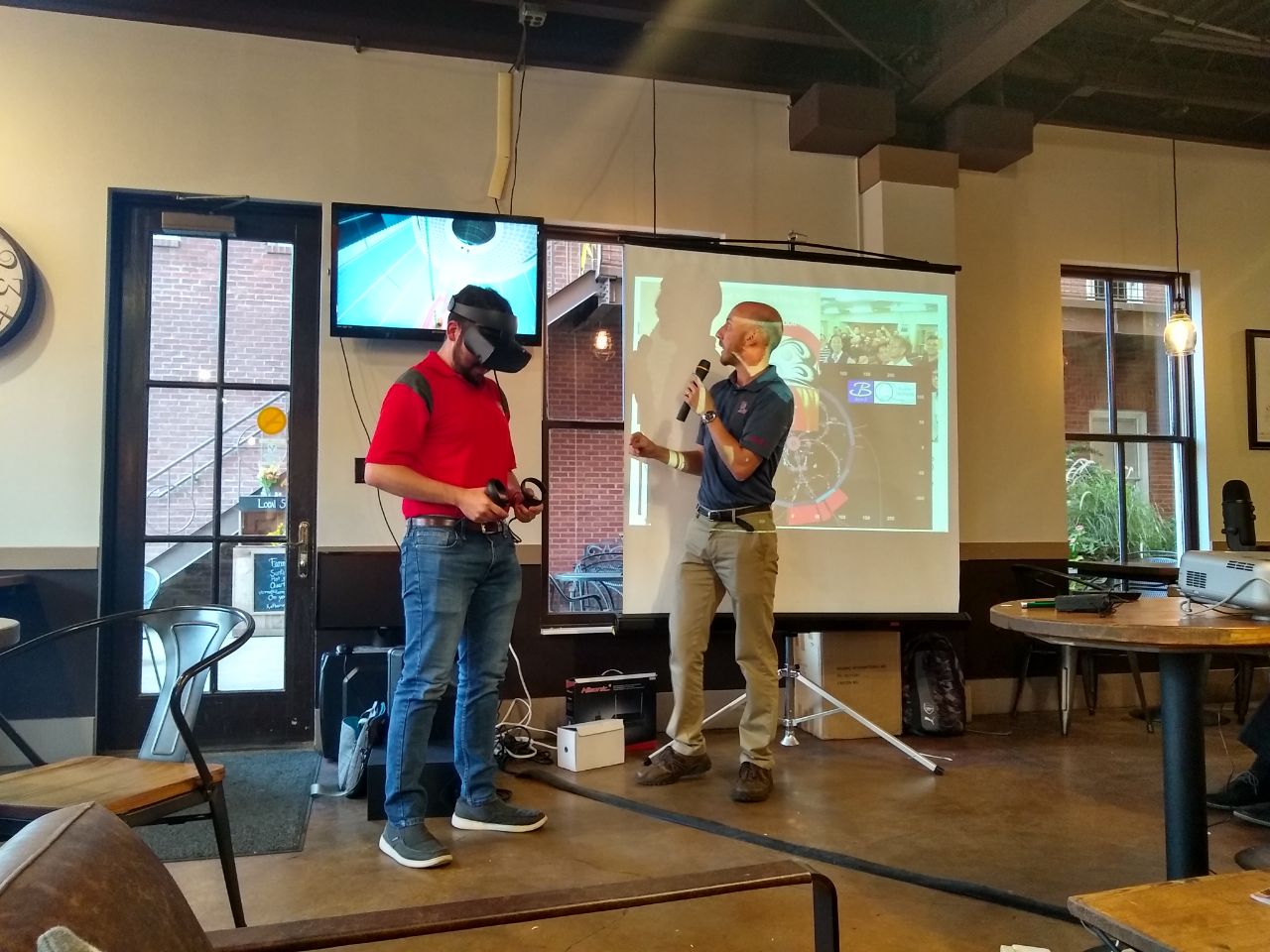November 2022
Ole Miss Aboard the ISS: Manipulating Fluids in Low Gravity
Dr. Likun Zhang, Department of Physics and Astronomy, University of Mississippi
How can liquids be contained and controlled in almost-zero gravity? On the International Space Station, with no gravity to force liquids to the bottom of a container, it becomes critical to develop strategies to control and contain the liquids in microgravity environments. The efficient containment and control of liquids in low gravity is essential for NASA's interests on technologies involving two phase fluids (liquids and vapors), including power generation, thermal management, and other aspects of advanced life support. In our lab, we focus on fundamental research on fluid dynamics in low gravity and develop strategies to control liquids using minimal support structures and acoustic waves. In this talk, those technologies will be discussed in addition to recent results from our lab experiments completed on the International Space Station.
Tuesday, November 15, 2022, 6:00pm - 7:00pm
Heartbreak Coffee, 265 North Lamar Blvd, Oxford
And via Zoom
October 2022
Big Science!
Dr. Jan Strube, Institute for Fundamental Science at the University of Oregon and Pacific Northwest National Laboratory (PNNL)
The field of particle physics started with the study of charged particles from cosmic radiation that originate high up in the Earth's atmosphere and reach the surface, where they can be detected. Curiosity about these particles led to the development of instruments and facilities that allowed us to produce them in the laboratory and study them in detail. While these experiments increased our understanding of nature, of the cosmological evolution, and of the origin of matter, they kept growing, leading to today's large international collaborations that steward investments of billions of dollars. What are the questions still left unanswered for today's particle physicists? What kind of questions are we looking to answer with the next generation of big science, and what are the facilities proposed to study them? Can we not get the same results with smaller investments? The author will present arguments that big scientific collaborations benefit fundamental physics, applied research, and society and the general public and looks forward to an interesting question and answer session after the presentation.
Tuesday, October 18, 2022, 6:00pm - 7:00pm
Heartbreak Coffee, 265 North Lamar Blvd, Oxford
And via Zoom
September 2022
Hitching a Ride for Effective Drug Delivery
Dr. Eden Tanner, Department of Chemistry and Biochemistry, University of Mississippi
Can you imagine if only 1% of your text messages got sent to the right person? This is the reality for almost all nanoparticles used for drug delivery, and especially for treating cancer. At this rate, you'd need to give someone a trillion nanoparticles to see any effect, which is not practical or healthy in a person. In our lab, we use a material called ionic liquids — essentially salts that are liquid at room temperature — as our nanoparticle GPS to make sure they get to exactly where they need to go in the body. The ionic liquids are selectively attracted to different kinds of blood components like red blood cells, white blood cells, and platelets. This results in them hitching a ride on the blood cells, letting the cells do all the hard work! For example, by hitching a ride on red blood cells, we are able to deliver about half of the particles we inject to the brain. This could revolutionize medicine by allowing us to effectively and selectively deliver drugs to treat brain cancer, Alzheimer's, depression, and many other diseases.
Tuesday, September 20, 2022, 6:00pm - 7:00pm
Heartbreak Coffee, 265 North Lamar Blvd, Oxford
And via Zoom
April 2022
Science and Conservation for Birds and Humans on Working Lands in the Mississippi Delta
Dr. Jason Hoeksema, Department of Biology, University of Mississippi
The Mississippi Delta was historically a vast wetland, covered with flooded woodlands, swamps, and oxbow lakes. These wetland habitats provided essential ecosystem services, including flood control and wildlife habitat. Today, most of these wetlands have been drained or diverted for agriculture, which supplies food and represents a key economic base in our region. Is there a way we can conserve and restore the ecosystem services of wetlands, while maintaining sustainable agricultural production? Delta Wind Birds (DWB) is a conservation non-profit based in Oxford, working to conserve existing wetlands and especially to create temporary wetlands on private lands in the Delta, including crop farms. Scientists from the University of Mississippi, the USDA-ARS, and Mississippi State University are partnering with DWB to study how these temporary wetlands may benefit migratory water birds, conserve soil, reduce downstream nutrient pollution, and improve crop yields.
Tuesday, April 19, 2022, 6:00pm - 7:00pm
Heartbreak Coffee, 265 North Lamar Blvd, Oxford
And via Zoom
If you missed it, you can check out the recording!
March 2022
Care: A Natural History ofIintimacy
Dr. Steven Phelps, Department of Integrative Biology, University of Texas – Austin
Close social relationships are common in the animal world, and are essential aspects of the human experience. They promote collaboration and engender conflict. When do we consider a relationship a bond? This talk draws from animal behavior, neuroscience, and evolutionary biology, to explore how and why bonds form in species as diverse as prairie voles, poison frogs, and humans.
Thursday, March 24, 2022, 6:00pm - 7:00pm
Heartbreak Coffee, 265 North Lamar Blvd, Oxford
And via Zoom
If you missed it, you can check out the recording!
Machine Learning Applications to Science: Do's and Don'ts
Dr. Dawn Wilkins, Department of Computer & Information Science, University of Mississippi
Machine Learning is a way to add intelligence to an application without explicitly programming it with knowledge. Instead, machine learning uses examples (data) as experience and builds a model of the implicit knowledge. The advantage of this approach is the speed at which an application can be developed and deployed. Machine learning models reduce human bias in making decisions and are not limited to problems with scope manageable by humans. On the other hand, there can be issues with the application of machine learning, including obtaining enough data, implicit biases, and difficulty in the interpretability and generalizability of the models.
We will talk about what machine learning is, how it is used, and some of the pitfalls and ethical concerns.
Tuesday, March 22, 2022, 6:00pm - 7:00pm
Heartbreak Coffee, 265 North Lamar Blvd, Oxford
And via Zoom
If you missed it, you can check out the recording!
February 2022
Magnetic Furnaces:
The Secret Lives of Middle-Aged Stars
Dr. Maria Weber, Department of Math and Sciences, Delta State University
We live with a star — the Sun! Stars have a secret life beyond what we can see with the naked eye. Some slowly fizzle out over billions of years, and some go out with a bang. Join astrophysicist Dr. Maria Weber as she discusses the lifecycle and magnetism of stars like the Sun, which are living out their middle-aged years between birth and death building intense magnetism in their deep interiors — magnetism, which may impact their orbiting worlds. Find out how well we can predict the Sunís magnetic behavior, if we should be concerned, and how our work to understand the Sun helps us better understand habitable worlds throughout the galaxy.
Tuesday, February 15, 2022, 6:00pm - 7:00pm
Uptown Heartbreak Coffee, 265 North Lamar Blvd, Oxford
And via Zoom
If you missed it, you can check out the recording!
Photos



